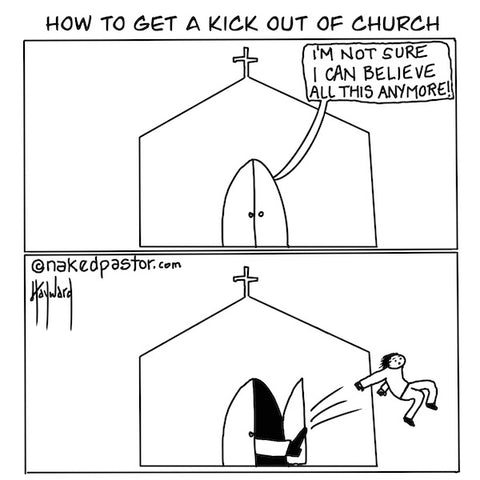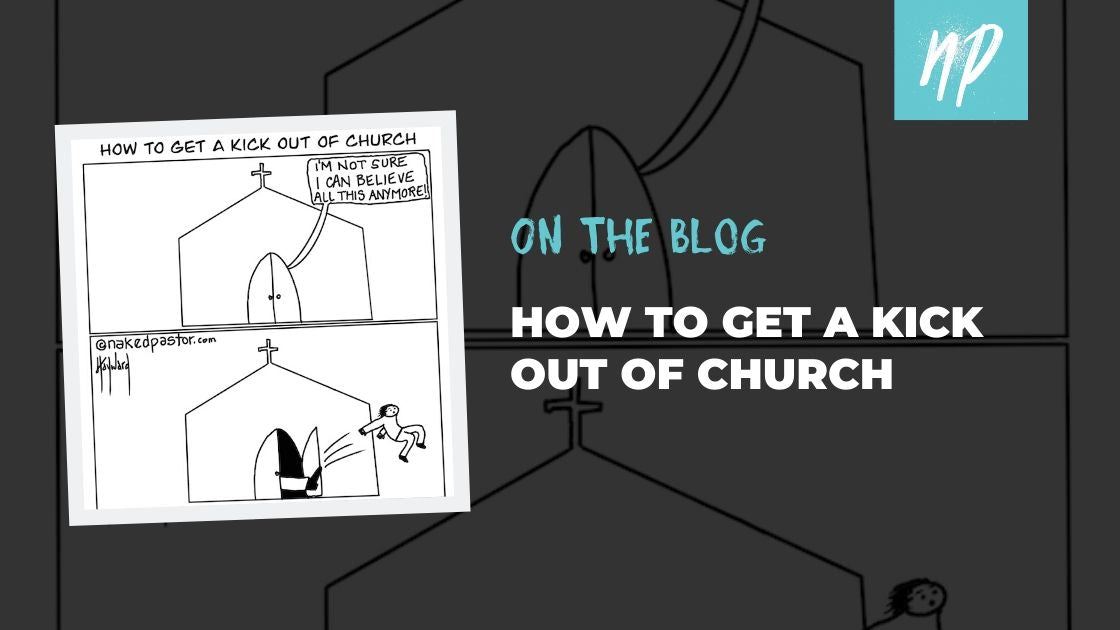I drew this cartoon in 2009, and it’s still making the rounds. Whenever I share something like this, someone inevitably responds with, “Not my church!” Many insist that in their congregations, they’re free to ask questions and challenge their faith. But I wonder: how deeply can you inquire? What kinds of questions are really allowed?

I know it’s okay to ask the prescribed questions, such as, “How long did God take to create the earth?” “Is there a Hell?” or “How can I be saved?” These are safe inquiries that fit neatly within established boundaries. My experience as a minister in the Reformed tradition showed me how ordered everything can be. The catechism provided a framework: members were given questions to ask, complete with prescribed answers. While many believe we should grow beyond that model, the truth is, many still cling to it.
But what about the deeper questions? Can you ask, “How can we believe in a God when there’s no proof?” “How do I know that religion isn’t just a grand scheme to keep me under control?” or “Is the Bible really inspired, or just a collection of documents written by men over 2,000 years ago?”
Some questions are superficial, while others challenge the very foundations of belief. This process of questioning beliefs is crucial for personal growth and understanding. However, for many, engaging in such inquiry can unearth feelings of religious trauma and expose the spiritual abuse that can occur within controlling church environments.

